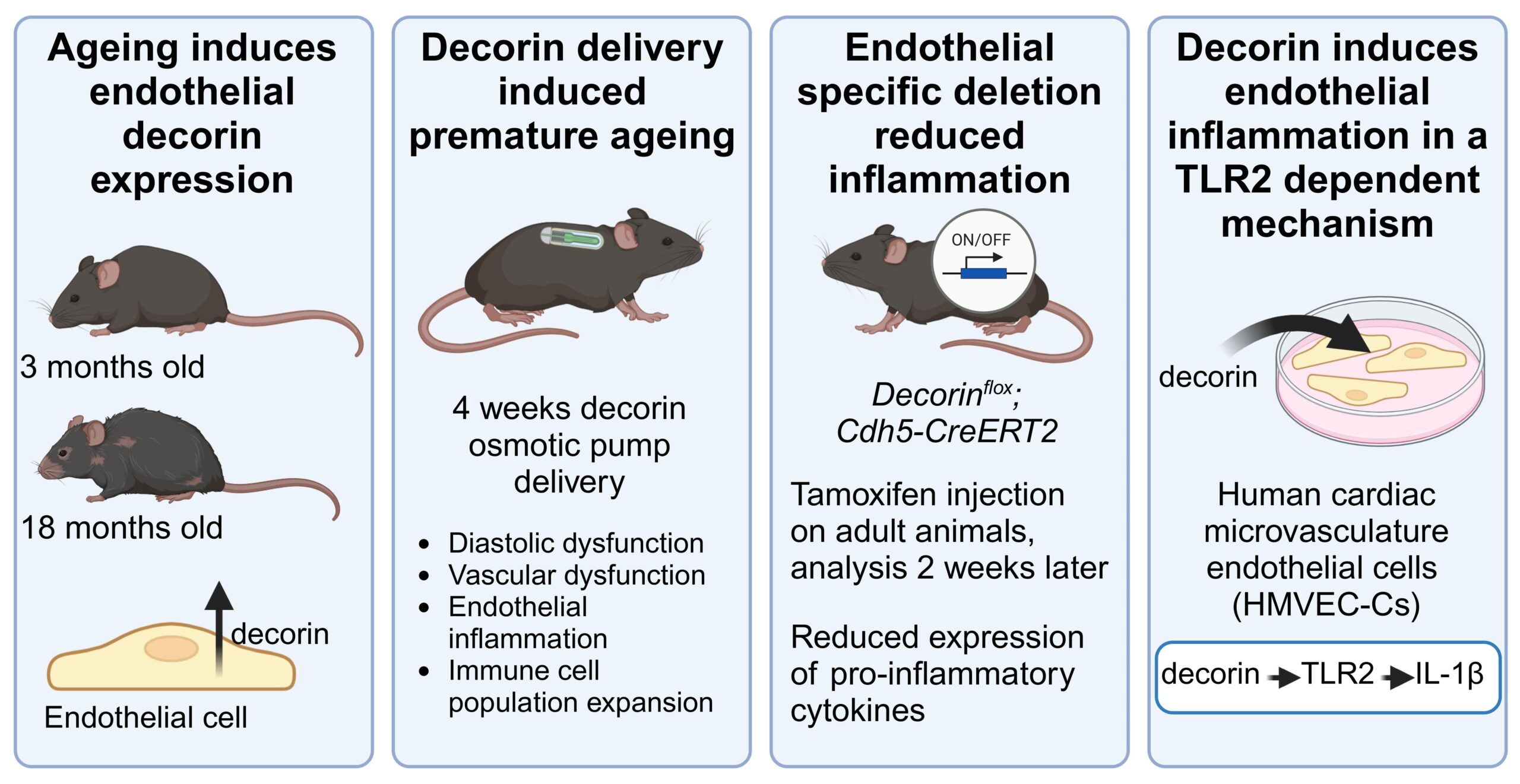Ageing-associated endothelial decorin induction and the impact of non-glycanated decorin on cardiac inflammation
Abstract:
Aims
Cardiovascular disease is the leading cause of death in the European Union and ageing is one of its major risk factors resulting in the progressive deterioration of the cardiac structures and function. Here, we have combined single-nucleus RNA sequencing, imaging, and molecular and cell biology approaches to explore the maladaptive signals that drive cardiac ageing.
Methods and results
Single-nucleus RNA sequencing analysis of young (3 months) and old (18 months) murine hearts revealed that the expression of decorin, a secreted proteoglycan expressed in the extracellular matrix of endothelial cells, is induced by ageing. Decorin treatment via osmotic mini pump induced diastolic dysfunction and a pro-inflammatory environment in the myocardium characterized by increased infiltration of immune cells, increased expression of IL-1β in endothelial cells and microvascular leakage in 3-month-old mice. In vitro, decorin treatment induces cardiomyocyte hypertrophy, the expression of different pro-inflammatory cytokines like IL1B in endothelial cells in a TLR2-dependent mechanism, and compromises the endothelial barrier function.
Conclusions
Together, our results identify non-glycanated decorin as a novel player contributing to cardiac ageing and disease. This form of decorin contributes to the age-related structural and functional dysfunction of the heart by inducing a pro-inflammatory environment in the myocardial microvasculature, a hallmark of cardiac ageing.
Read the full publication: Ageing-associated endothelial decorin induction and the impact of non-glycanated decorin on cardiac inflammation | Cardiovascular Research | Oxford Academic
Originally published August 2025. Cardiovascular Research.

